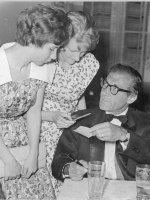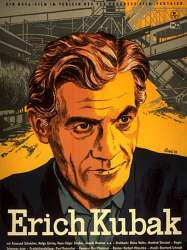Siegfried Weiss is a Actor Allemand born on 18 april 1906 at Chemnitz (German)

Siegfried Weiss (18 April 1906 – 8 October 1989) was an East German actor.
Weiss' film career started already in the Nazi era, with the 1937 Sherlock Holmes inspired movie Die Graue Dame (The Gray Lady), and had lasted for almost fifty years. After the Second World War he returned to acting on screen, working with the East German studio DEFA and with the television producers DFF. He appeared in more than fifty independent GDR productions and in co-productions with other Eastern Bloc countries, such as the epic movies Ernst Thaelmann, Karl Liebknecht and Liberation. He retired in 1984. Weiss retired at 1987, making his last appearance on stage in the Berlin Ensemble on 25 October that year.
Source : Wikidata
Siegfried Weiss

- Infos
- Photos
- Best films
- Family
- Characters
- Awards
Birth name Siegfried Weiss
Nationality German
Birth 18 april 1906 at Chemnitz (German)
Death 8 october 1989 (at 83 years) at Berlin (German)
Nationality German
Birth 18 april 1906 at Chemnitz (German)
Death 8 october 1989 (at 83 years) at Berlin (German)
Biography
Weiss made his artistic debut on the stage of the Halberstadt Theater, at 1924. He continued his career in the theaters of Luebeck, Koenigsberg, Magdeburg, Leipzig and Berlin, where he acted in the Berlin Ensemble, among others.Weiss' film career started already in the Nazi era, with the 1937 Sherlock Holmes inspired movie Die Graue Dame (The Gray Lady), and had lasted for almost fifty years. After the Second World War he returned to acting on screen, working with the East German studio DEFA and with the television producers DFF. He appeared in more than fifty independent GDR productions and in co-productions with other Eastern Bloc countries, such as the epic movies Ernst Thaelmann, Karl Liebknecht and Liberation. He retired in 1984. Weiss retired at 1987, making his last appearance on stage in the Berlin Ensemble on 25 October that year.
Usually with
Filmography of Siegfried Weiss (24 films)
Actor

Husaren in Berlin (1971)
, 1h32Genres Comedy, Historical
Themes Political films
Actors Manfred Krug, Rolf Herricht, István Iglódi, Siegfried Weiss, Hertha Thiele, Norbert Christian
Roles Gotzkowsky
Rating56%





This script must be run from the command line
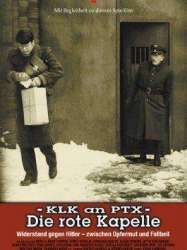 , 1h41
, 1h41Directed by Horst E. Brandt
Genres Drama, Historical
Themes Spy films, Political films
Actors Jutta Wachowiak, Karin Lesch, Siegfried Weiss, Günther Simon, Peter Sturm, Rudolf Ulrich
Roles Wilhelm Canaris
Rating73%





After Hitler's rise to power in 1933, a group of regime opponents from various backgrounds consolidated under the leadership of Harro Schulze-Boysen and Arvid Harnack. They gather intelligence and pass it on to other countries. After the outbreak of the Second World War, and especially after the German invasion of the Soviet Union, they intensify their work. In August 1942, the Gestapo arrests Boysen and soon after cracks down on the spy ring.
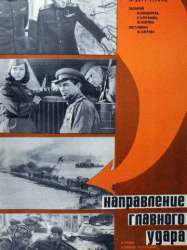
Liberation (film series) (1969)
, 1h10Directed by Youri Ozerov
Genres Drama, War, Romance
Themes Politique, Political films
Actors Nikolay Olyalin, Larisa Golubkina, Boris Seidenberg, Vsevolod Sanaïev, Vasily Shukshin, Fritz Diez
Roles Erich von Manstein.
Rating75%





After the Soviets are alerted to the imminent German offensive in Kursk, they launch a preemptive artillery strike, delaying the enemy. The battalion of Lieutenant Colonel Lukin – led by officers Tzvetaev, Orlov, and Maximov – participates in the battle, as well as the tank of Lieutenant Vasiliev.
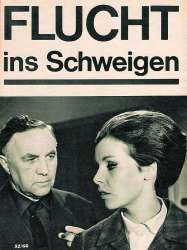
Flucht ins Schweigen (1966)
, 1h23Genres Drama, Crime
Actors Fritz Diez, Siegfried Weiss, Jiří Vršťala
Roles jeweler
Construction works carried out in a small village in Thuringia reveal the corpse of a member of the Waffen-SS, who seems to have been buried during the end of the Second World War - although no fighting took place in the area. Two forensics experts from the People's Police Investigations Department, Stetter and Hoffmann, arrive in the village to determine the death cause. At first, they suspect the owner of the lands in which the body was discovered; but after questioning him, he is murdered. A golden coin they found leads them to a local woman named Helga, and they reveal the truth behind the matter.

Engel im Fegefeuer (1965)
Directed by Herrmann Zschoche
Genres Drama
Actors Sabine Thalbach, Siegfried Weiss
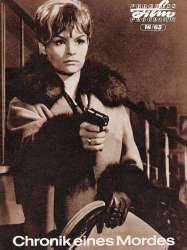
The Story of a Murder (1965)
, 1h27Genres Drama
Actors Angelica Domröse, Ulrich Thein, Jiří Vršťala, Siegfried Weiss
Roles Dr. Rotholz
Rating69%





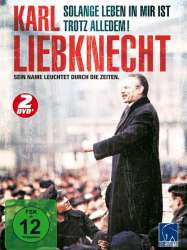 , 1h54
, 1h54Directed by Günter Reisch
Genres Drama, Biography, Historical
Themes Politique, Political films
Actors Mikhaïl Oulianov, Albert Hetterle, Jutta Hoffmann, Erika Dunkelmann, Zofia Mrozowska, Siegfried Weiss
Rating72%





 , 1h54
, 1h54Directed by Günter Reisch
Genres Drama
Themes Political films
Actors Albert Hetterle, Erika Dunkelmann, Siegfried Weiss, Hans Finohr, Adolf Fischer, Werner Dissel
Rating72%





The film opens in Berlin in 1914, as Germany is preparing for World War I. Liebknecht (Schulze) receives a call from a fellow lawyer and revolutionary, Mr. Rauch, that documents have been found proving the German heavy arms industry's secret involvement in the buildup to the war. He brings these documents to a meeting of the Reichstag, accusing Gustav Krupp and his company of bribing officials to release military secrets. In addition to this, Krupp and his company wrote to ask the French media to state that the French military has twice as much artillery as they actually possess so that they may provoke a surge in militarism. Afterward, while celebrating a friend's wedding, Liebknecht learns of the assassination of Archduke Franz Ferdinand, recognizing that this is the war the German imperialists were seeking. However, the resources for war still need to be approved. Liebknecht immediately begins campaigning among the public, denouncing the war as a means to secure profit for the capitalists. In an SPD party meeting, Liebknecht is one of only fourteen members to vote against the war credits. In the subsequent Reichstag meeting, he votes with the party discipline in favor of the war credits, to the public's surprise. He announces in the party meetings that he will no longer yield to party discipline and will stand by his anti-militarist principles even if the party leadership will not do the same. Liebknecht is the only one of the Reichstag — including 111 SPD representatives — to vote against the war loans, resulting in a number of death threats and work bans. Despite his immunity as a Reichstag member, Liebknecht is called to serve on the front as a sapper. It is here that he writes his 1915 manifesto, "The main enemy is at home!" The manifesto is passed among his fellow soldiers on the front before returning home. While he is away, Paul Schreiner, whose wedding Liebknecht attended earlier in the film, dies on the front. This leaves his wife Käthe to raise their newborn child alone and make Liebknecht's manifesto public.
 , 1h21
, 1h21Genres Drama
Actors Fritz Diez, Rudolf Ulrich, Siegfried Weiss, Fritz Kirchhoff, Helga Göring
Roles Kripphahn
Dr. Ahrendt developed a new model of an iron smelter. When his invention fails to produce the required results, he begins to doubt himself, and is even considered as a liar by some. However, the workers in the factory are determined to achieve the goals set forth, and together with the scientist they manage to prove that the machine can be used as planned.

Die Flucht aus der Hölle (1960)
Genres Adventure
Themes Transport films, Aviation films
Actors Armin Mueller-Stahl, Brigitte Krause, Robert Trösch, Siegfried Weiss, Norbert Christian, Alfred Müller

Der Prozeß wird vertagt (1958)
Genres Drama, Crime
Actors Gisela Uhlen, Raimund Schelcher, Gerhard Bienert, Brigitte Krause, Alexander Hegarth, Günther Ballier
Rating31%





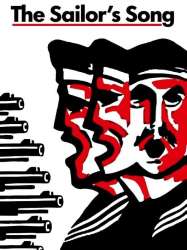
The Sailor’s Song (1958)
, 2h6Directed by Kurt Maetzig, Günter Reisch
Genres Drama, Historical
Themes Seafaring films, Transport films, Political films
Actors Günther Simon, Raimund Schelcher, Ulrich Thein, Hilmar Thate, Siegfried Weiss, Hans Finohr
Roles Hauptmann
Rating62%





As the news of the October Revolution sweep through the world, the German High Seas Fleet's command, wary of a mutiny, decides to send all its ships to a suicide mission in the English Channel. Sailors Albin Köbis and Max Reichpietsch are sentenced to death for political activity. When the socialist sailor Steigert, a member of the firing detail, cannot bring himself to shoot them, he is arrested. On the cruiser Prince Heinrich, Steigert's friends Lenz, Lobke, Kasten and Bartuschek receive Vladimir Lenin's transmit to all of mankind calling for peace. Slowly, the sailors in Kiel — all members of different socialist parties: the Social Democrats, the Independent Socialists and the Spartakists — begin to realize the need for a revolution. The workers and the shipmates rebel against the officers, but the political gaps between them lead the uprising to a failure. In the end, many of the rebel sailors attend the foundation conference of the new Communist Party of Germany.
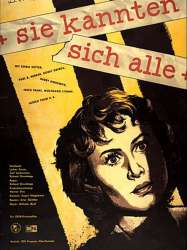
They All Knew Each Other (1958)
Genres Drama
Actors Sonja Sutter, Ulrich Thein, Margot Ebert, Siegfried Weiss
Roles Dr. Blei
Rating61%





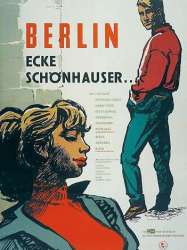
Berlin, Schoenhauser Corner (1957)
, 1h21Genres Drama, Romance
Actors Ilse Pagé, Raimund Schelcher, Helga Göring, Erika Dunkelmann, Siegfried Weiss, Gerd Michael Henneberg
Roles Karl-Heinz's Father
Rating64%





Dieter, Angela, Kohle and Karl-Heinz are part of a group of delinquent youths who prowl Schönhauser Allee, in Berlin's Prenzlauer Berg. The four, each with his troubled life, are often in trouble with the police. Karl-Heinz steals an identity document and uses it to enter West Berlin, where he murders a man while committing armed robbery. The police suspect that his friends assisted him. When he returns, Kohle and Dieter confront Karl-Heinz about an unpaid debt; he threatens them both with a pistol, and Kohle knocks him unconscious. Karl-Heinz recovers and runs away. But Dieter and Kohle believe they have killed Karl-Heinz. Kohle and Dieter get assistance in fleeing to West Berlin, and are staying in a home with other young men. They plan to get to the Federal Republic of Germany. Before long Dieter wonders whether Karl-Heinz is really dead, and whether it would be safe to return to East Berlin. He is threatened by some of the young men in the home where they are staying. Kohle is concerned that the two friends will be separated. He drinks a solution of coffee and tobacco to feign illness, so he can't be sent away. On the next day, Dieter discovers Kohle dead, poisoned by the beverage. Dieter returns home, where Angela awaits his child, and explains the situation to the police. He is released, while Karl-Heinz is imprisoned.
 Connection
Connection
